
Thinking about adding a deck to your home? Explore this guide to learn about the average cost to build a deck based on factors like size, material, and labor.
You probably don’t need to fear those pops in the night
Popping sounds are the result of natural expansion and contraction in a deck.
Deck components may shift due to changes in temperature or moisture penetration.
In most cases, popping is not a cause for concern and doesn’t need to be fixed.
You should inspect a deck often and repair loose or damaged wood and hardware.
You can call a pro to assist with structural issues and sealing your deck for winter.
An outdoor deck is a wonderful way to enjoy the nice weather and entertain friends, but it can cause undue stress when you hear loud, unexplained popping sounds coming from your deck. Luckily, there’s a reason for the noise, and it’s often not serious. Explore the reasons why a deck makes popping noises and some simple solutions.
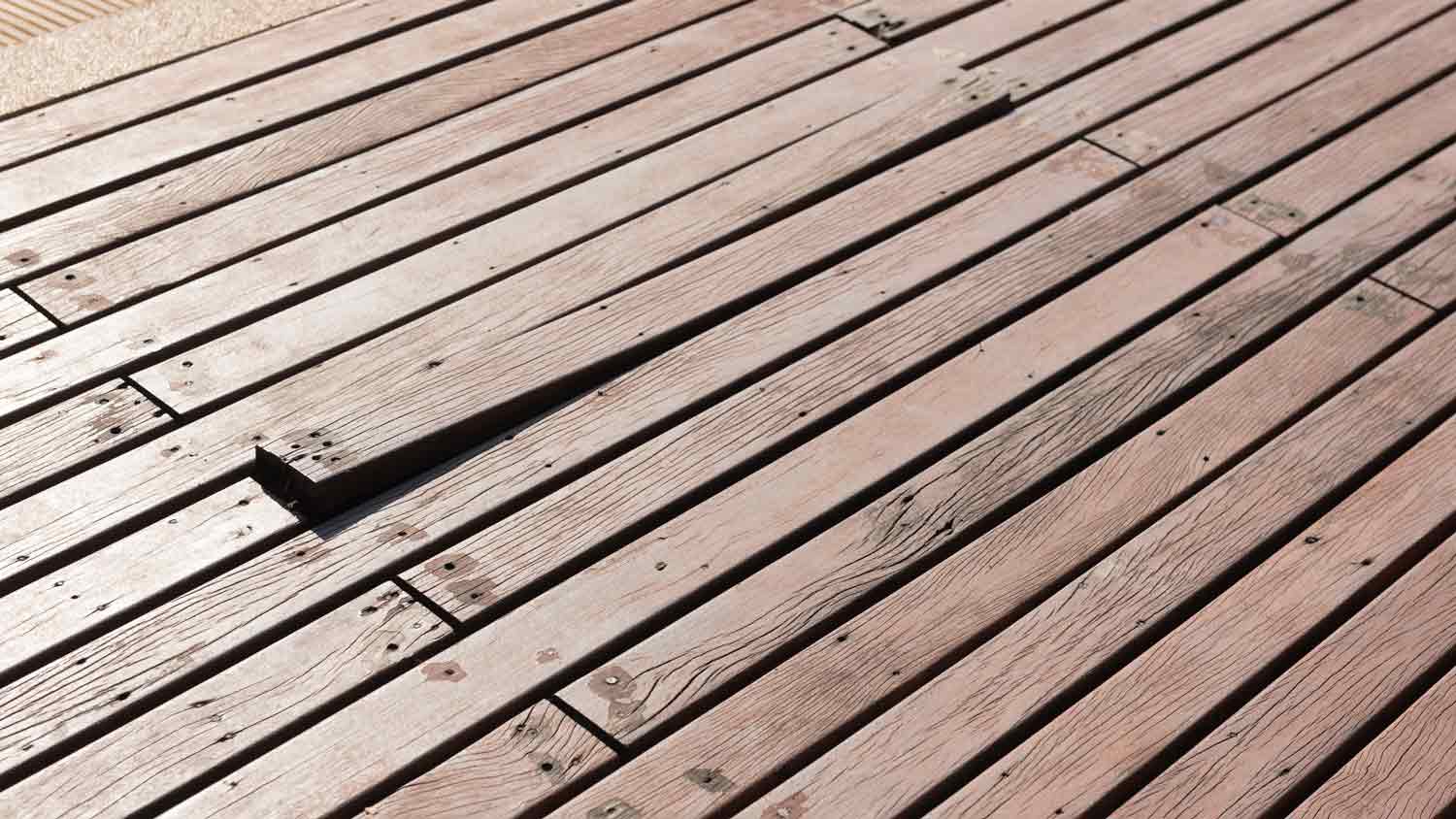
All decking materials expand and contract with temperature changes. A deck that sits out in the sun may expand on a hot day and then contract when the temperature drops at night. This is especially true during periods of freezing temperatures.
Different parts of the deck may move at different rates, creating friction and pressure between materials. As pressure builds, eventually that friction causes sharp movement accompanied by a popping sound. This can happen to deck boards and joists. As joists move, they push up on boards and may even cause them to pop loose.
Deck expansion and contraction are natural and not a cause for concern. If you inspect your deck and notice damage, repair it as needed. If you haven’t hired a pro who knows how to build a deck properly, ensure there is enough space between deck boards. There should be a slight gap between each board to account for natural expansion and contraction.
As with deck boards, hardware such as nails and screws can also contract in the cold. In most cases, this will loosen them and cause a creaking noise. In some cases, however, this can cause them to loudly pop out of place.
Simply hammer the nail or drill the screw back into place.
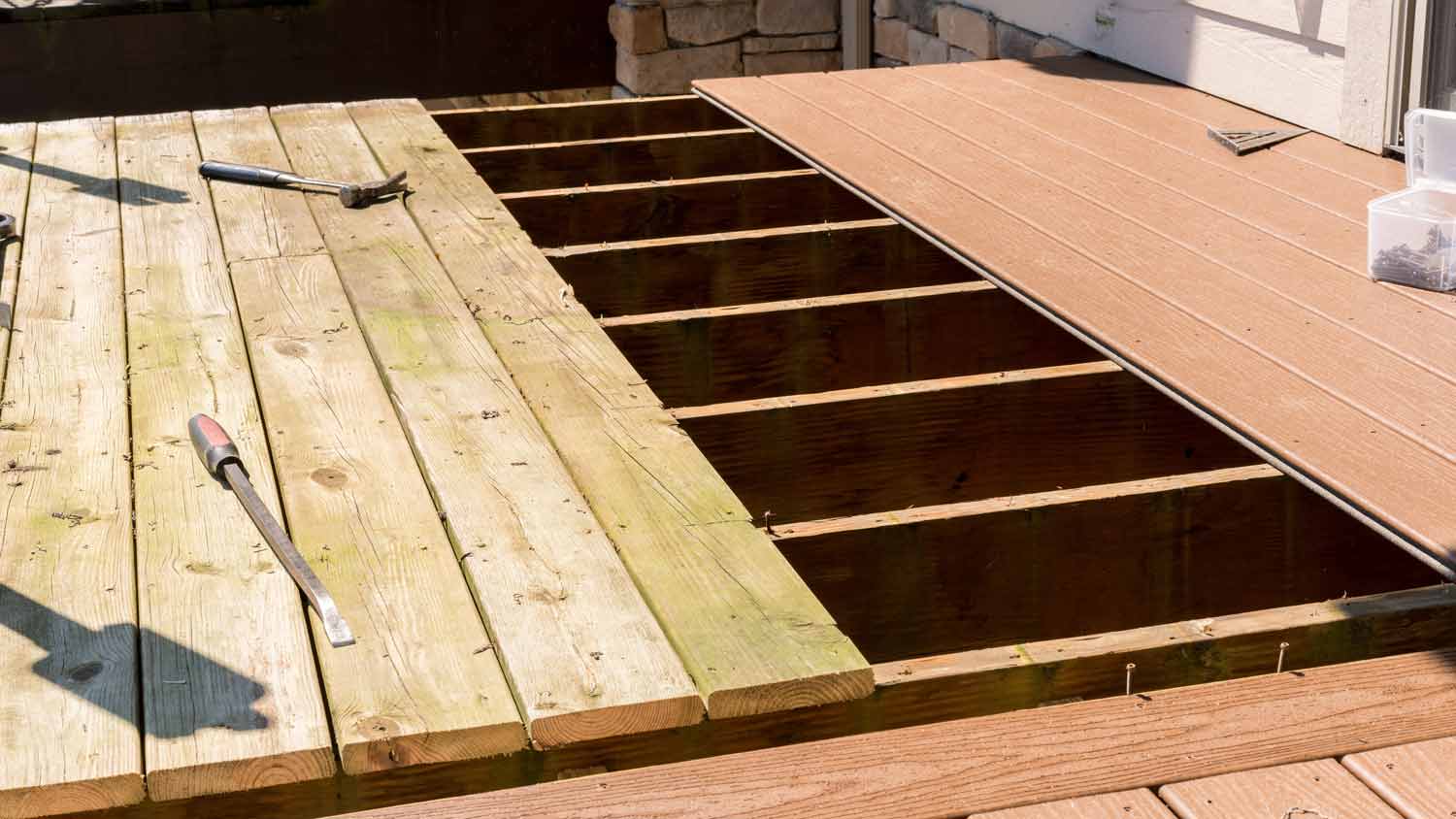
Heavy rain can cause moisture to seep into the wood of a deck and get trapped between boards. Then, as temperatures change, that moisture expands and causes pressure. This moisture can also freeze during extremely low temperatures, creating enough pressure when expanding into ice that it can cause boards to break.
When the weather warms up, inspect your deck for damage and replace any damaged boards as needed. Then, clean and seal your deck to prevent future moisture penetration.
The lumber in a natural wood deck will start to warp slightly as it weathers and ages. This is normal, but the result is that deck boards start to rub against one another, creating noises that range from pops to squeaks to creaks as you walk across them.
There are several ways to fix or reduce the noise coming from warped deck boards:
Add an extra decking screw or nail at the location of the noise to prevent it from rubbing
Use joist brackets and decking screws to attach the noisy board to the joist
Glue a wood shim into the gap between the noisy board and the joist
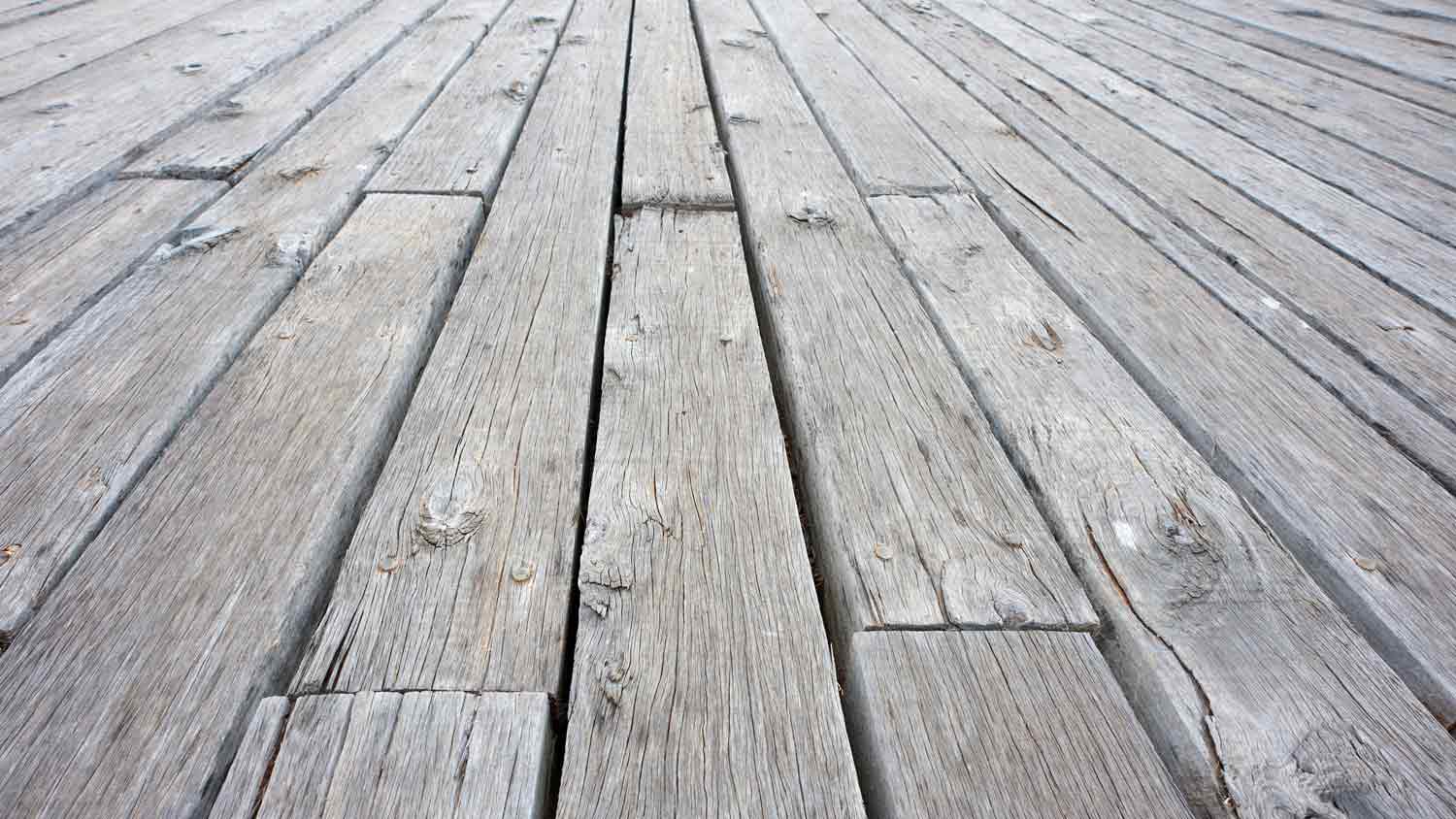
If your deck boards or the framing beneath is cracked, it will likely make a noise each time you step on it. While this may sound like a pop, it’s more likely to sound like a creak or squeak.
Bond the two sides of the crack back together using an epoxy-based wood binder. Don't rely on regular wood glue, as it won't be strong enough. Once you've applied the wood binder, insert a shim in the gap on either side of the broken board to push the sides of the crack closer together until the epoxy has fully dried and cured according to the instructions on the label.
Frost heaving occurs when moisture in the ground freezes and pushes up on one or more legs of a deck. Even a slight push can stress the deck and cause popping sounds. Over time, the deck can permanently slope out of place.
Frost heaving is not an easy fix, and you can't solve it with a DIY. If you use a bubble level and notice that your deck is sloped, call a pro to inspect it. However, frost heaving will never be an issue in decks that a professional properly installed.
In most cases, a deck making popping noises is natural and nothing to be concerned about. If you experience loose boards and nails, you can take care of these with simple tools. Call a professional deck builder near you when you need help with more complex tasks, such as structural repairs, winterization, mold and mildew removal, sealing, or tarping.
From average costs to expert advice, get all the answers you need to get your job done.

Thinking about adding a deck to your home? Explore this guide to learn about the average cost to build a deck based on factors like size, material, and labor.

Trellises are structural pieces that add to your garden, but they can also add to your bills. Keep reading to find out how much a trellis costs to build.
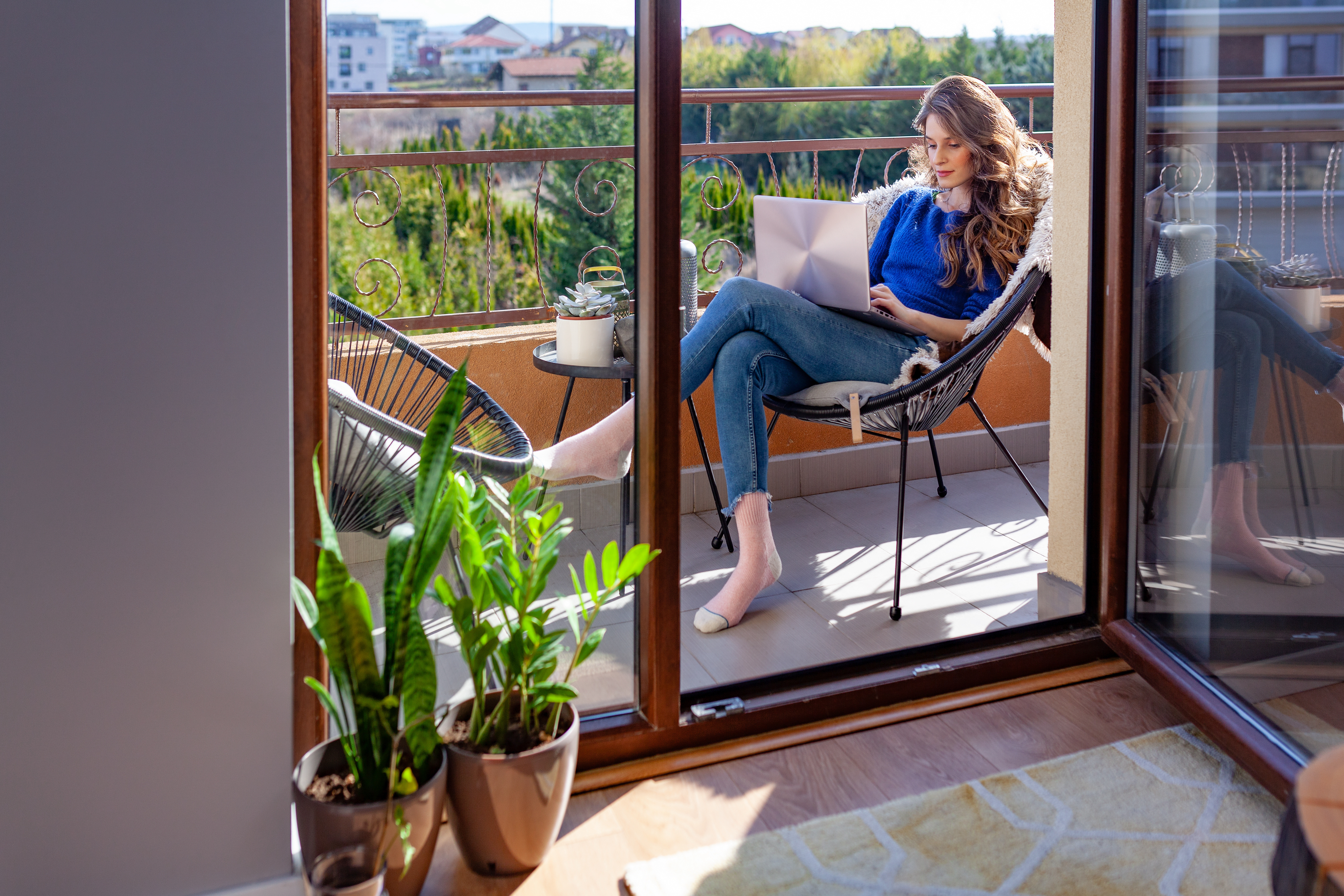
Discover how much it costs to build a balcony, including average prices, cost factors, and tips to budget your project. Learn what impacts balcony construction costs.
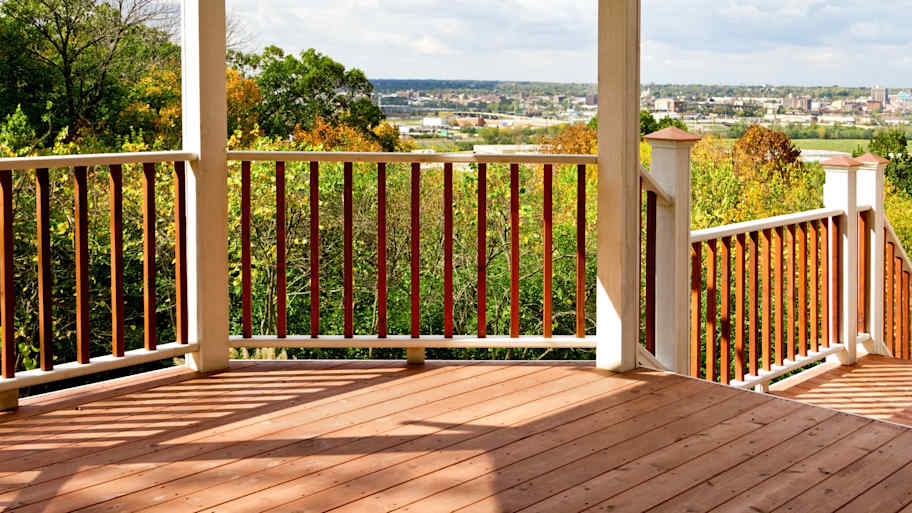
Many homeowners wonder why their cedar deck is turning black. This article explains the most common causes and how to fix them.
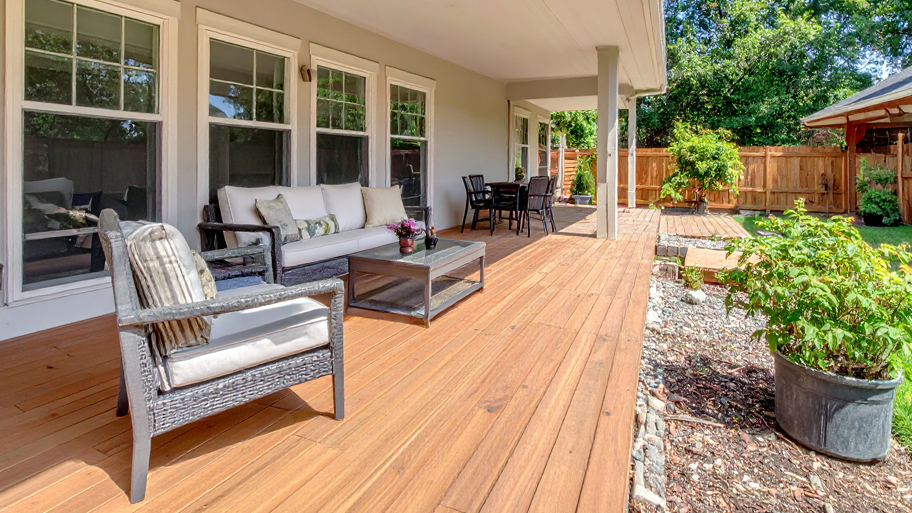
Homeowners are turning to pressure treatment to shield their wood from the elements and pesky insects. Discover how much longer you can make your wood last.
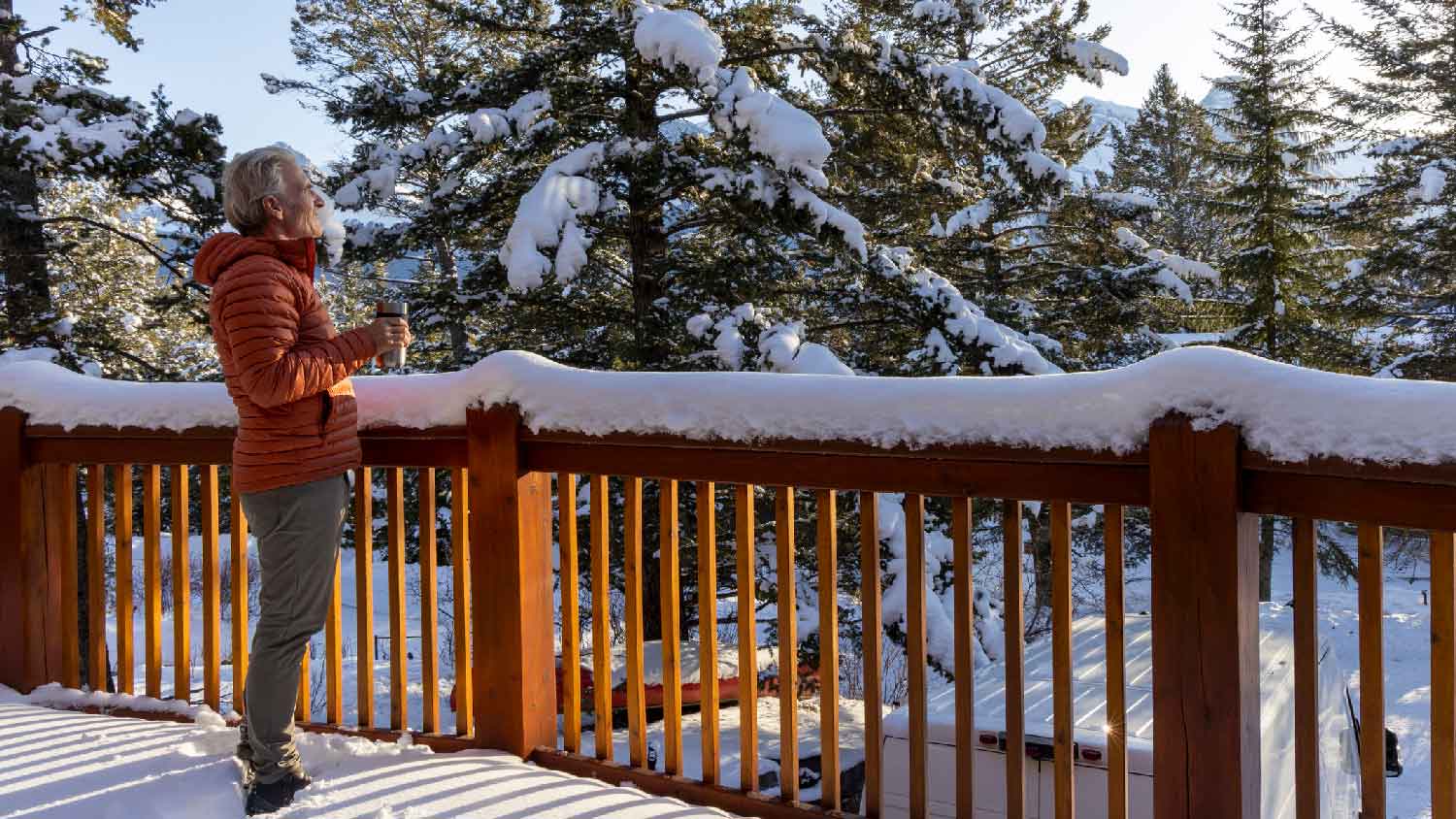
Learning how to winterize a deck can protect your outdoor space from harsh weather. Here’s how to do it properly so you can enjoy a fresh deck next summer.